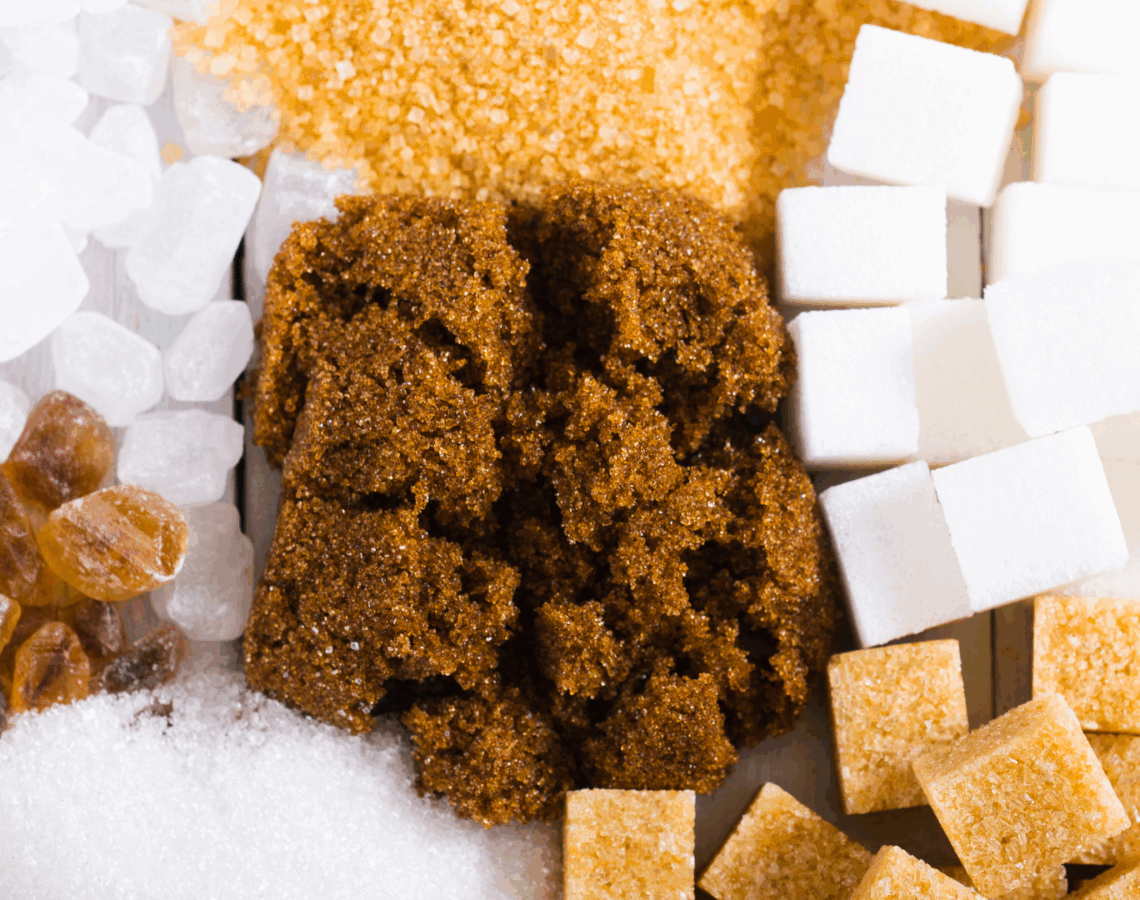Why we’re addicted to sugar and how to cut the cravings

Sugar cravings can feel like the brain is hard-wired to run on sweet foods and drinks. It turns out, this isn’t far from the truth. In this article, you’ll discover why we crave sugar and how to reduce how much we consume.
The problem with too much sugar
A number of physical, psychological and social factors contribute to sugar cravings, resulting in more than half of all Australians exceeding the recommended daily intake of added sugars1. The problem with consuming too much added sugar is that it may contribute to excess weight gain, heart disease, liver disease, tooth decay, diabetes, and some cancers.

We are born with a preference for the sweet taste
From the moment we’re born, we prefer sweet foods2. This stems from evolution, and our ancestors using their sense of taste to decide what was safe to eat. When food was scarce, sweet foods were preferred as they’re high in energy, while bitter tasting foods were avoided as they could contain harmful toxins. We still carry these preferences, which explains why children might not be as inspired by leafy green vegetables as they are sweet biscuits. While this sense of taste once helped humans survive, it’s no longer helpful in today’s world. Now, sweet foods and drinks are everywhere, abundant, and cheap.
What can we do?
We can start to override this preference for sweet food by including different flavours early in life, even before birth, and throughout childhood.
- For pregnant women, consuming a variety of healthy food and drinks during pregnancy, and while breastfeeding, can help babies develop taste preferences for a range of foods3.
- Repeatedly expose children to a wide range of healthy food and drinks, even if they initially dislike them. The more exposure, the more likely they will eventually accept them – even the bitter leafy greens!
- For adults, eating a variety of foods from the 5 food groups is key to expanding our taste preferences.
Our brain sees sugar as a reward
When we consume sweet food and drinks, our brain’s reward system is activated, releasing dopamine, a chemical that allows us to feel pleasure. Because dopamine makes us feel good, we look for sweet foods again, which causes repeated cravings. The problem is that over time, our brains adapt and we need to eat higher amounts of sugar to feel the same reward4. At the same time, sugar can impact the brain’s impulse control, making it harder to resist cravings, which may become stronger and more frequent.5
What can we do?
When sugar cravings strike:
- Try taking a 15-minute walk. Physical activity can also trigger a ‘reward response’ in the brain6
- If you’re craving food, try snacking on fresh fruit, trail mix, or a few squares of dark chocolate
- If you’re craving a soft drink, reach for plain sparkling mineral water or homemade iced tea instead.
While resisting cravings can reduce them in the long run, you don’t need to restrict your sugar intake completely. This can actually be counterintuitive as these foods become ‘forbidden fruit’, which makes your brain crave them more and encourages you to binge when you eventually give in. Instead, plan your favourite treats into your diet and enjoy them occasionally.
For more information on the recommended servings for ‘discretionary foods’, refer to the Australian Guide to Healthy Eating.

Modern lifestyles encourage sugar intake
Our busy lifestyles can drive us to make less healthy decisions about food and drinks. When we’re stressed our bodies secrete hormones like cortisol, which is linked with a desire for sweet foods, and ghrelin, which makes us feel hungry. When we don’t get enough sleep, we also tend to crave foods and are more likely to make poor food decisions7.
On top of this, when we’re busy and low on time, it can be easy to reach for convenience foods that may not be as nutritious. Over time these quick fixes, like having dessert after dinner or ordering a soft drink with a meal, can become a habit that’s hard to break.
What can we do?
Focus on making wellbeing a priority in your life, such as:
- Aiming for 7-9 hours of sleep per night
- Managing stress by making time for your mental wellbeing
- Planning your shopping and meals in advance to avoid relying on convenience foods
- Taking a nap if you’re sleepy to revive your energy levels and reset your hormones.
Sugary treats have their place as part of a balanced and healthy diet, but when we start relying on them for an ‘energy hit’ it can start to negatively impact our health and wellbeing. By focusing on lifestyle factors and prioritising healthier food and drinks, we can start to curb those sugar cravings. If your sugar cravings are becoming unmanageable, reach out to your Health Practitioner or contact an Accredited Practicing Dietitian for support.
Sources:
- The Australian Burea of Statistics. (2017). Australian Health Survey: Consumption of added sugars, 2011-12.
- Forestell, C. A. (2017). Flavor Perception and Preference Development in Human Infants. Annals of Nutrition and Metabolism.
- Spahn, J. M., Callahan, E. H., Spill, M. K., Wong, Y. P., Benjamin-Neelon, S. E., Birch, L., . . . Casavale, K. O. (2019). Influence of maternal diet on flavor transfer to amniotic fluid and breast milk and children’s responses: a systematic review. The American Journal of Clinical Nutrition.
- Hatanaka, M. (2020). Experts Agree: Sugar Might Be as Addictive as Cocaine. Retrieved from healthline: https://www.healthline.com/health/food-nutrition/experts-is-sugar-addictive-drug
- Jacques, A., Chaaya, N., Beecher, K., Aoun Ali, S., Belmer, A., & Bartlett, S. (2019). The impact of sugar consumption on stress driven, emotional and addictive behaviors. ScienceDirect.
- Ledochowski, L., Ruedl, G., Taylor, A., & Kopp, M. (2015). Acute Effects of Brisk Walking on Sugary Snack Cravings in Overweight People, Affect and Responses to a Manipulated Stress Situation and to a Sugary Snack Cue: A Crossover Study. PubMed.
- Sullivan, D. (2021). Why Am I Craving Sweets? Retrieved from healthline: https://www.healthline.com/health/food-nutrition/why-am-i-craving-sweets
Acknowledgement
This content has been developed by Health and Wellbeing Queensland’s team of expert nutritionists, dietitians, and exercise physiologists. Always visit your healthcare professional for dietary advice tailored to your circumstances.


